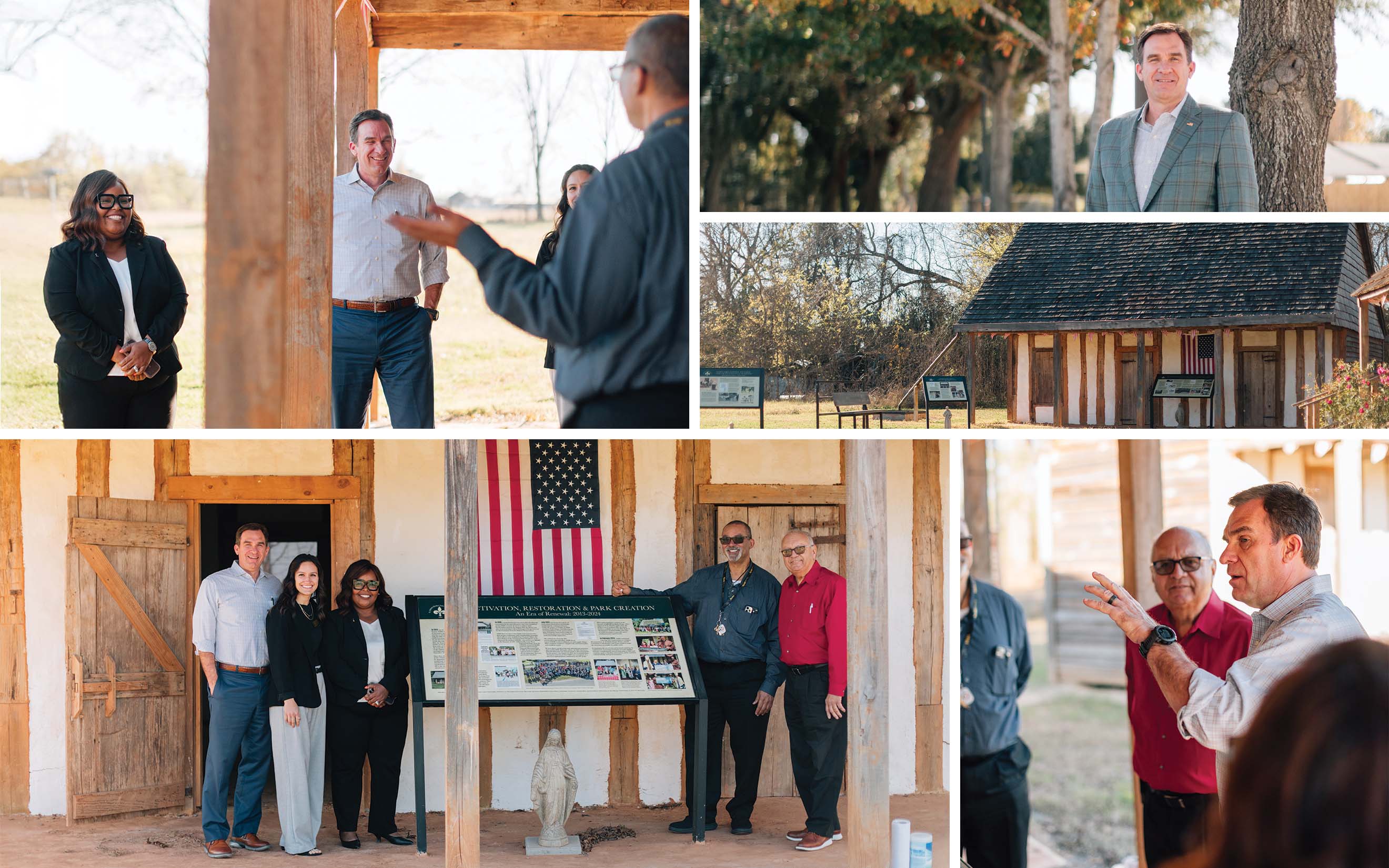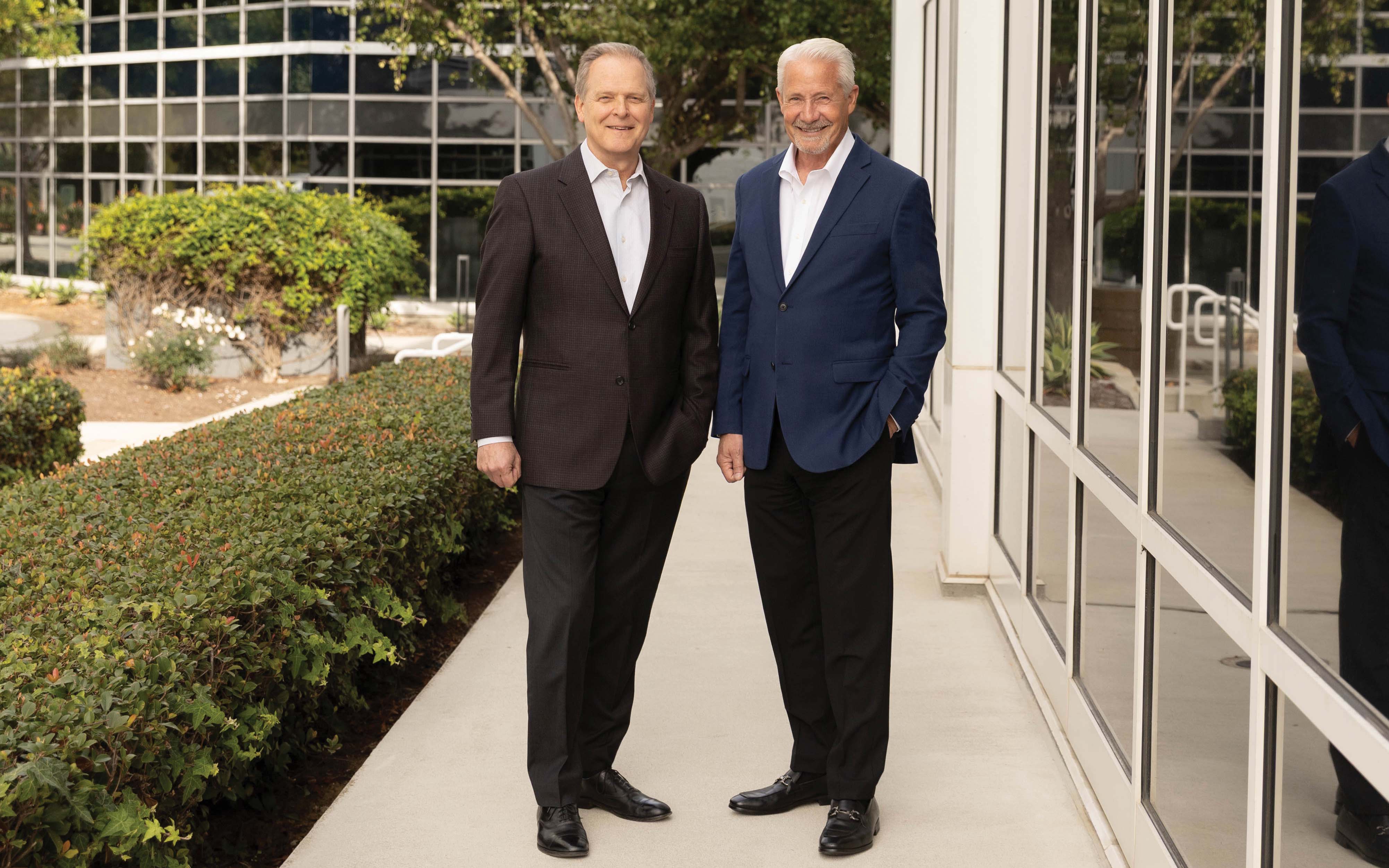Prospective homebuyers today might feel like the odds are stacked against them as they face increasing costs, market challenges and other socioeconomic barriers. To help them break through, community banks across the country are stepping up with personalized solutions and initiatives built upon their expertise.
Making Homeownership Achievable, Together
November 03, 2025 / By Katie Kuehner-Hebert
Prospective homebuyers today might feel like the odds are stacked against them as they face increasing costs, market challenges and other socioeconomic barriers. To help them break through, community banks across the country are stepping up with personalized solutions and initiatives built upon their expertise.
Homeownership is a critical milestone for many, especially in terms of building generational wealth. Yet, significant challenges persist, particularly for minority groups and younger generations.
“It wasn’t too long ago when you could purchase a home for $150,000 in our area, but today, the starting point for an entry-level home is about $250,000, and wages have not kept up,” says Joe Quiroga, president of $1 billion-asset Texas National Bank in Mercedes, Texas. “Put all that together, and entry into homeownership is really tough for both our immigrant population and our younger population, [as well as our low-income population].”
Community banks can help address such challenges by offering tailored products, programs and financial education that make homeownership more accessible. As Tim Roy, ICBA’s vice president of housing finance policy, says, community banks “are everywhere,” including in rural areas that megabanks and mortgage lenders may not serve.
“That very fact makes community banks uniquely situated to help many potential homeowners,” he says, “because purchasing a home is a decision that you want to talk to a person face to face [about], someone who knows the community, who knows the builders, who knows the contractors. They have that expertise that can guide you every step of the way, which can be reassuring for people who may not have any experience with homeownership.”
Abby Delaney, senior vice president of marketing and communications at $7.3 billion-asset Bankers Trust in Des Moines, Iowa, concurs. “Bankers Trust believes that homeownership is more than just buying a house,” she says. “It’s a key milestone that builds stability, equity and stronger communities.”
Partnerships and team building
After learning that Des Moines has one of the biggest racial disparities in homeownership, Bankers Trust set out to play a more active role in helping narrow that gap, Delaney says. The community bank created a partnership with one of central Iowa’s affordable housing nonprofits to provide free homebuyer education classes geared toward minority homebuyers.
The partnership has since expanded to include nonprofit partners in two of Bankers Trust’s other markets—Cedar Rapids, Iowa, and Phoenix, Arizona—and has reached more than 150 people so far.
“Additionally, we have a great team of experienced mortgage lenders who work closely with buyers to ask the right questions and match a buyer with the loan product that best fits their needs,” Delaney says.
According to Ron Haynie, ICBA’s senior vice president of housing finance policy, a community bank will go the extra mile for a customer, because its lenders often know the borrower or where the borrower works, and they are also more familiar with the location of the home they wish to purchase.
Bankers Trust offers a range of loan types and a community development loan program designed to expand access to mortgages for buyers with low and moderate incomes.
“Our bankers build strong relationships with their customers, so they can understand their needs and aspirations and find the right products and services to help them reach those goals,” Delaney says. “While that looks different for every customer, it certainly includes helping customers get their finances ready for a major loan or purchase, such as a mortgage.”
Guidance that matters
Community banks benefit when their communities thrive, so they have every reason to help their neighbors get on the housing ladder, Roy says. Whether it’s first-time homebuyers, second-timers or people who are just on the cusp of being able to afford a home, these banks want to help.
“Community banks can give [homebuyers] guidance and tell them what steps they need to take, how much down payment they need [and] what their credit score should look like,” Roy says.
OneUnited Bank, based in Boston, has financed close to $1 billion of affordable housing in low- to moderate-income communities in Los Angeles, Miami and Boston. These efforts help stabilize communities by allowing current residents to remain, while providing low-cost financing to landlords, says Teri Williams, president and owner of the $606 million-asset community bank.
“As a designated, multi-award-winning community development financial institution [CDFI], OneUnited Bank is invested in providing our services to all communities, but specifically in low- to moderate-income communities where the need for services and solutions that provide financial empowerment are literally life-changing,” Williams says.
The CDFI is also working hard to help younger adults realize the dream of homeownership. OneUnited Bank partners with credit-building platform Esusu and aims to revolutionize the path to homeownership for renters, Williams adds.
The Esusu platform offers rent reporting, which contributes to your credit score, credit-checking capabilities and educational tools for other credit-building needs.
“By reporting on-time rental payments, this alliance simplifies credit building, paving the way to homeownership and delivering essential financial literacy tools and AI technology to help close the wealth gap,” Williams says.
To date, the Esusu platform has enabled more than 200,000 renters to establish a credit score for the first time, while unlocking more than $50 billion in credit activity. On average, Williams says, renters see a positive credit score increase of 45 points, giving them access to better-quality financial products and lower interest rates.
Practically anyone looking to buy a home these days is facing affordability challenges, not only with home prices and interest rates, but even just coming up with the down payment, says Roy.
“Sometimes that’s prohibitive for many groups of people, especially those who are struggling day to day to pay their rent,” Roy says. “This is all over the country and has only gotten worse over the years. Homeownership is a difficult thing to achieve these days.”
Texas National Bank found a creative way to help more people, including minorities, young adults and the low-income population, afford a home. The community bank established a wholly owned subsidiary, the Del Valle Community Development Corporation, to fulfill this mission.
As a community development corporation (CDC), Del Valle does not rely on federal affordable housing grants, so it can bypass the long wait times and uncertainty that nonprofits in the sector typically have to endure, Quiroga says. Instead, the CDC uses money and resources directly provided by Texas National Bank, homebuilders and other partners.
First, Del Valle buys affordable, undeveloped residential lots, using capital downstreamed from the bank. As a CDFI, Texas National Bank can attract lower-cost deposits from other banks to raise the capital. Then, the community bank enlists its homebuilder customers to construct entry-level homes on the lots at cost, or at least for a lower price margin.
“Neither the bank nor Del Valle makes any money off these homes,” Quiroga says. “We sell them at cost to the end consumer, and we also stack down-payment assistance from various organizations.”
He notes that such assistance comes from money donated to the bank’s foundation—from partner banks, other organizations or the CDC’s own board members and management—then stacked onto assistance from the Federal Home Loan Bank.
Moreover, CDC board members and management donate products or services to the homebuilding process. For example, a civil engineer on the board donates all the required surveys, and the CEO donates all the appliances.
“The end result is we’re building homes that are appraising between [$200,000 and $250,000], but we’re selling [new houses] at about $170,000,” Quiroga says. “Then, when we stack the down-payment assistance dollars and with that extra help, the first-time homebuyer is financing about $130,000, so they’re building $75,000 to $80,000 worth of equity on day one.”
First things first: Education
OneUnited Bank offers in-depth financial information in its Financial Education Center, says Teri Williams, president and owner of the Boston-based community bank. “Homeownership cannot be achieved without financial literacy, which is why we have been laser focused on offering products, services and information that will educate low- to moderate-income communities,” Williams says.
The online platform offers lessons on beginning your financial wellness journey, how to lower debt, building emergency savings, financial calculators, investing and more.
“We understand this may be a challenging time for our young people who are striving for financial well-being and a chance at the American dream of homeownership,” Williams says.
The community bank also offers an annual national youth financial literacy contest that includes a free e-book for youth. Additionally, the bank provides other youth-focused programs, such as a custom Black Panther comic book, created by Marvel Comics and Visa Inc., featuring financial literacy exercises designed for children.
Considerations beyond what’s expected
Quick Stat
$428K
The median existing-home sales price, as of August 2025
Source: National Association of Realtors
Closing costs are also getting more expensive, says Haynie. Such costs—appraisals, credit reports, title insurance, a year’s worth of prepaid property taxes and homeowner’s insurance to be placed in escrow—all continue to rise.
“That’s a big chunk of money right out the gate, not to mention other settlement charges, such as transfer taxes, recording fees, real estate agent commissions,” he says. “All those things add up, and so it’s a very expensive process.”
However, since many community banks keep mortgages in their portfolio instead of selling them in the secondary market with set requirements for such costs, they have ways to lower some of those external costs, Haynie says.
For example, if the loan amount is less than $400,000 and the community bank is going to hold a loan in its portfolio, it doesn’t have to pay for a full appraisal on that property, he says. It can conduct an in-house property evaluation, where a qualified employee from the bank goes to the property and determines if the value is sufficient to cover the loan.
Some community banks also don’t require homebuyers to obtain title insurance that would protect the bank against any defects in the title that would hold up the sale, Haynie says. Instead, these banks will work with local real estate attorneys who will check the land records at the local courthouse, which he says is “a lot cheaper than a title insurance policy.”
Community banks with portfolio loans can also lower the cost of credit reports, Haynie says. For a loan that’s sold in the secondary market, banks have to pull credit from all three credit bureaus, which can cost upwards of $600. But if the mortgage is going to be placed into a bank’s portfolio, the bank can just pull credit from one bureau, saving the borrower a chunk of money.
Escrow costs can also pose an issue for some prospective homeowners. A community bank may not require the borrower to escrow a year’s worth of property taxes and homeowner’s insurance, he says. Instead, the bank will require the borrower to make monthly payments directly to the insurance company and their local tax assessor, saving customers a great deal of upfront costs.
No matter the circumstances, community banks will be there as a trusted neighbor.
“In a small town, you know everybody. That’s the other part of the value proposition of dealing with a community bank,” Haynie says. “A community bank will also deliver in all markets, good and bad. Those are their towns, and they are there to support the members of their communities.”
Class is in session
Bankers Trust in Des Moines, Iowa, has developed free homebuyer education classes in partnership with local organizations in each of its markets, says Abby Delaney, senior vice president of marketing and communications. The one-day classes cover a wide variety of topics, including the financial considerations that go into saving for a home, building credit, the mortgage process and what it takes to own and maintain a home.
The community bank’s Phoenix, Arizona, office partners with multiple nonprofits to help expand homebuyer education throughout the metropolitan area, Delaney says.
“They are especially focused on reaching underserved communities and connecting consumers with products that fit their needs, whether it’s our BankOn certified checking account, credit builder credit cards or our community development mortgage loans,” she says.
Bankers Trust also hosts a financial blog called the Bankers Trust Education Center, Delaney says. The blog includes a dedicated homeownership section where consumers and businesses can learn how to calculate down payments based on loan type, understand how credit scores affect mortgage options and explore practical tips for buying a first home.
“We also share articles that span a broad range of financial topics, including personal finances, security, wealth management and investing, and those geared toward our business and commercial customers,” she says.
Subscribe now
Sign up for the Independent Banker newsletter to receive twice-monthly emails about new issues and must-read content you might have missed.
Sponsored Content
Featured Webinars
Join ICBA Community
Interested in discussing this and other topics? Network with and learn from your peers with the app designed for community bankers.
Subscribe Today
Sign up for Independent Banker eNews to receive twice-monthly emails that alert you when a new issue drops and highlight must-read content you might have missed.
News Watch Today

Join the Conversation with ICBA Community
ICBA Community is an online platform led by community bankers to foster connections, collaborations, and discussions on industry news, best practices, and regulations, while promoting networking, mentorship, and member feedback to guide future initiatives.












